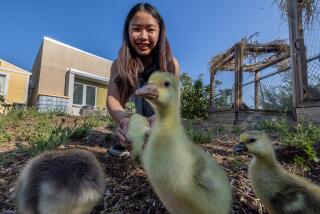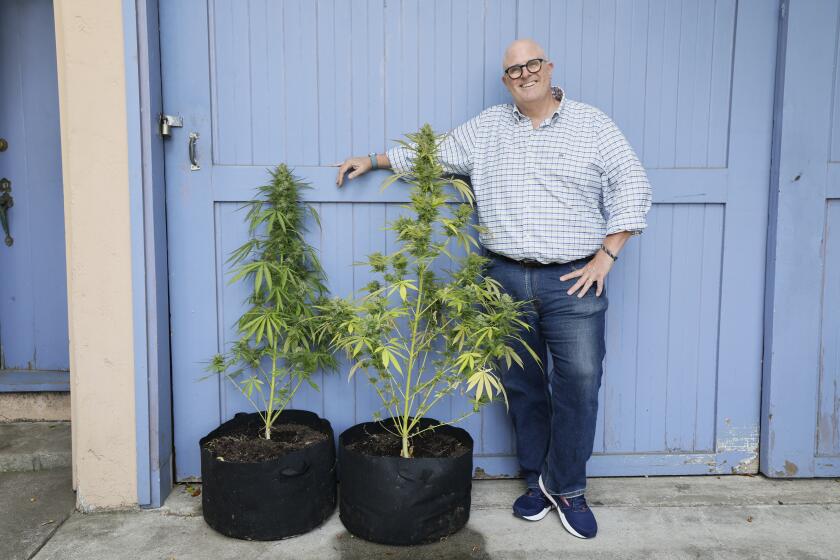Caring for Animals or Exploiting Them?
Giving urban students a chance to care for and care about farm animals, as the Mission Viejo High agriculture program does, is no doubt a good thing (“Classes Keep ‘Em on the Farm,” Feb. 19). But learning to exploit animals under the guise of caring for them is not.
Euphemisms help make it possible. As the story puts it, the program’s 6-acre farm is “home” to horses, cows, hogs, sheep, chickens and bees. This “home,” however attractive it can be made to appear in fact or language, is nothing more than a large cage where animals are imprisoned, most of them under sentence of death for the crime of being nonhuman, helpless, and, of course, salable.
Their student jailers are also victimized, since they must be “educated” to overcome their natural dismay at the fact that the creatures they tend and grow fond of are simply living commodities destined for slaughter. We know humane education has succeeded when they can give the animals clever names such as “Makin’ Bacon” and “Porterhouse.”
What these students also learn is the most inefficient, energy-wasting method of food production ever discovered. Fifty percent of this nation’s grain (not to mention vast amounts of scarce water) is consumed, not by humans, but by farm animals, who convert it at great expense into less food in the form of meat.
If this country alone reduced its intake of meat by 10%, the saving in grain could feed millions of people who die from starvation each year. But that would require a radical change in the kind of values encouraged by high school agriculture programs.
JAMES L. CALDERWOOD, Laguna Beach
More to Read
Sign up for Essential California
The most important California stories and recommendations in your inbox every morning.
You may occasionally receive promotional content from the Los Angeles Times.










